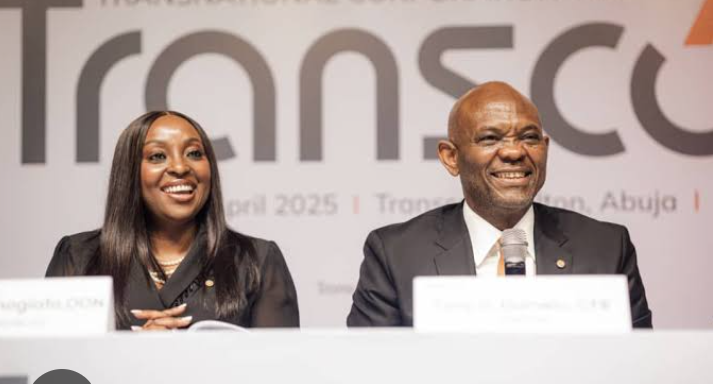
Power on the Brink: Tony Elumelu Urges Tinubu to Avert National Blackout Over Mounting GENCO Debts

In a passionate and urgent plea that underscores the fragile state of Nigeria’s power sector, billionaire investor and Chairman of Transcorp Group, Tony Elumelu, has called on President Bola Ahmed Tinubu to immediately intervene in the worsening crisis between the Federal Government and power generating companies, popularly known as GENCOs. Elumelu, a prominent figure in the energy space and an active player in the power generation industry through Transcorp Power, warned that the failure of the government to settle its debts to the GENCOs has pushed the sector to the edge of a complete collapse, with banks now threatening to foreclose on key players.
Elumelu’s statement was not just a financial lament; it was a bold wake-up call to the presidency and relevant authorities, as he painted a dire picture of an industry on life support. According to him, the debt situation has spiraled out of control, with the Federal Government owing GENCOs several hundreds of billions of naira for electricity already generated and delivered to the national grid. “The generating companies are indebted to banks, and banks are threatening to foreclose on them,” Elumelu declared, sending shockwaves across both the financial and energy sectors.
His appeal comes at a time when Nigeria is already grappling with unreliable power supply, frequent blackouts, and mounting public frustration. While successive administrations have made promises to reform the electricity sector, the reality on the ground has been a vicious cycle of underinvestment, poor infrastructure, and now—crippling debt. If the GENCOs are unable to continue operations due to a cash crunch, the ripple effect would be catastrophic. Industries, businesses, and millions of households will be plunged into darkness, further stalling economic activities and weakening public confidence in government reforms.
Elumelu’s concern is deeply rooted in practical realities. Generating electricity requires substantial financial investment—not just in infrastructure but in gas supply, technical maintenance, and manpower. The current model, where GENCOs produce power only to be owed for it, is unsustainable. Most GENCOs took loans from banks to acquire and run power plants after the privatization of the sector. These loans were predicated on the assumption that they would be paid for power generated, enabling them to service their debts and remain operational. However, years of delayed payments and policy inconsistencies have dried up cash flows, putting the entire model at risk.
Industry insiders say the total outstanding debt owed to GENCOs is approaching one trillion naira. This massive liability has made it impossible for many power companies to pay gas suppliers, service loans, or even conduct regular maintenance on aging equipment. In some cases, generators have been forced to operate below capacity or shut down entirely. “The government must act now,” Elumelu warned, stressing that the current situation is not just a business challenge but a national emergency.
While Elumelu has been one of the few industry leaders to publicly speak out on the issue, he is not alone in his frustrations. Several top executives of power companies have been quietly lobbying the government through private channels, hoping for a bailout or structured payment plan. Their silence is largely due to fear of losing investor confidence or causing panic in the markets. But with banks now knocking on their doors and threatening to seize assets, the silence is giving way to open agitation.
Observers say the situation could soon escalate into a full-blown financial crisis. If commercial banks begin to seize power plants or freeze the accounts of GENCOs, the resultant chaos could see the entire power sector grind to a halt. Worse still, it could trigger a chain reaction where banks themselves begin to suffer liquidity problems due to non-performing energy sector loans, further threatening Nigeria’s fragile economy.
President Tinubu, who campaigned on a platform of economic revival and infrastructure development, now finds himself at a critical crossroads. While his administration has made some moves to stabilize the macroeconomic environment—including the removal of fuel subsidies and exchange rate reforms—failure to address the energy sector’s debt crisis could wipe out gains made so far. It could also derail his ambitious plans for industrialization, job creation, and increased foreign investment.
Elumelu’s public appeal is therefore not just a corporate plea; it’s a patriotic warning. He emphasized the role of reliable electricity in national development and poverty alleviation. “No economy can grow without stable power,” he reiterated, urging the President to make the power sector a top priority. He further advocated for transparency in the payment systems and accountability among distribution companies (DISCOs), which often fail to remit revenues collected from end users, further compounding the financial woes of GENCOs.
The Nigeria Electricity Regulatory Commission (NERC) and the Ministry of Power are yet to issue official responses to Elumelu’s statement. However, insiders suggest that talks are underway at the highest levels of government to craft a workable plan that would ease the pressure on the GENCOs while enforcing fiscal discipline across the entire power value chain. Some proposals on the table include partial debt settlement through bonds, the creation of a Power Sector Stabilization Fund, and even a temporary government-backed loan guarantee scheme to keep the GENCOs afloat.
As Nigerians continue to suffer under the weight of poor electricity, the call for immediate and decisive action grows louder. Tony Elumelu’s warning serves as a stark reminder that the private sector cannot shoulder the burden of national development alone. Without prompt intervention from the Federal Government, Nigeria may be heading toward an unprecedented power disaster that could stall economic recovery, heighten social unrest, and erode whatever trust is left in public institutions.
In a country where over 80 million citizens still lack access to reliable electricity and where businesses spend billions on alternative power sources annually, the stakes could not be higher. If there’s any time for the government to act, that time is now. And if Elumelu’s urgent message doesn’t get Abuja’s attention, the consequences may soon be felt in every home, every office, and every streetlight that fails to come on when darkness falls.


